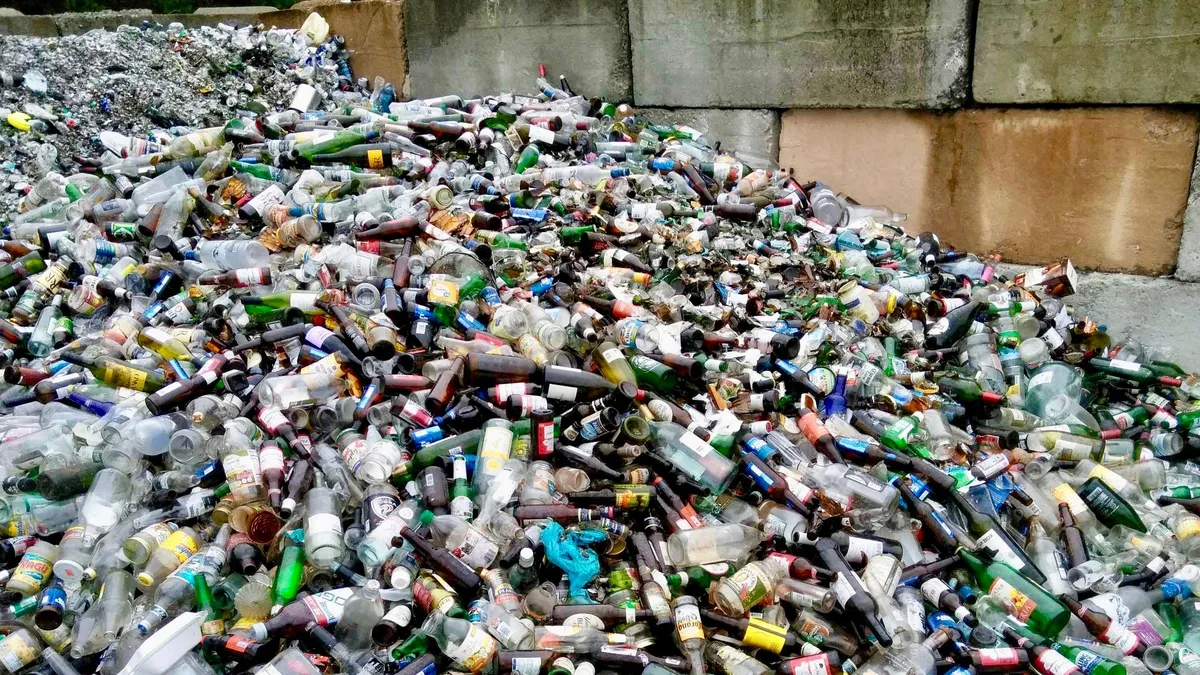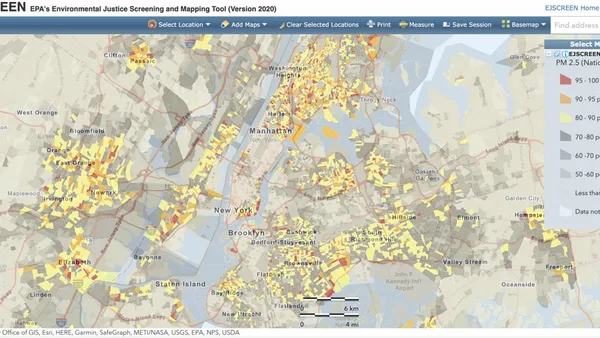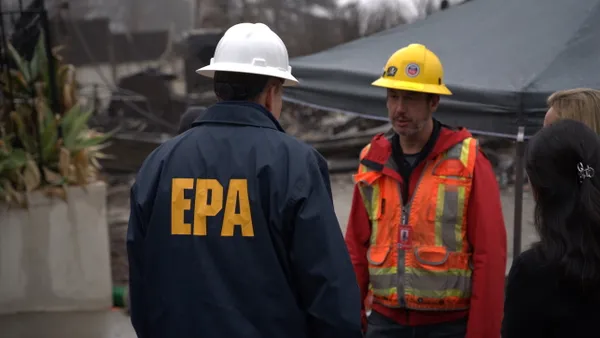Glass recycler Strategic Materials has published its 2022 sustainability report, which details slight improvements in greenhouse gas emission levels, waste reduction and employee safety.
SMI, which describes itself as North America's largest glass recycler, processes about 2 million tons of glass per year, with much of that sourced from single-stream recycling programs and container redemption systems. The company also expanded its offerings to collection services when it purchased Ripple Glass in 2022.
"We've come a long way in a short period of time. We are a cleaner and more committed company," said Laura Hennemann, senior vice president of sustainability and corporate affairs, in a statement.
The ESG improvements are part of the company’s plans to “set the bar higher” on glass recycling opportunities throughout North America, CEO Chris Dods said in the report. “The U.S. recycling recovery rate for glass is about one third nationally, a robust recycling infrastructure is underdeveloped in Mexico, and opportunities to recycle more materials in Canada is within our reach,” he said.
The 2022 report includes SMI’s second year of reporting its scope 1 and 2 GHG emissions. The company began tracking and reporting such emissions in 2021. It plans to set GHG emissions reduction targets aligned with Science Based Targets initiative criteria “in future reporting.”
In 2022, SMI’s scope 1 GHG emissions were 18,686 metric tons of CO2 equivalent, down from its 2021 baseline of 21,639 MT CO2e. Scope 2 emissions in 2022 were 31,866 MT CO2e, down from a baseline of 32,728 MT CO2e the previous year.
Overall emissions decreased by 7%, largely by reducing diesel fuel consumption, the report states. GHG emissions sources include diesel fuel, gasoline, purchased electricity, welding gas, natural gas and propane.
SMI says it plans to improve its overall data collection process in the future and will later report on scope 3 GHG emissions related to its supply chain.
SMI’s report also focuses on its glass quality and its handling of contamination found in the inbound glass supply. SMI processes feedstock glass from several streams, including from curbside recycling programs and community drop-off bins. SMI also accepts automotive glass, windows and other specialty glass products.
In 2022, SMI diverted about 2.18 million tons of material and estimates it saved about 2.5 billion individual glass bottles from disposal. The company also works with specialty recyclers to handle batteries from inbound streams. It sent 515,803 tons of waste to landfill in 2022, down from 536,944 tons in 2021.
SMI has maintained a product quality acceptance rate of over 99% for the last three years. SMI facilities use a series of conveyors, screens, optical sorters and other equipment to reach target quality standards, and the company is in the process of “optimizing our operations” by improving sorting technology at several key facilities, Dods said, but didn’t elaborate on what kind of technology could come.
Other metrics in the report include SMI’s health and safety goals. The company aims for its annual total recordable incident rate to be under 1.25. SMI fell short in 2022 at 1.77 but improved over the 2021 rate of 2.9.
Of SMI’s facilities, 78.3% had zero recordable injuries in 2022, according to a news release. There were 20 fewer recordable injuries overall, which reduced workers’ compensation expenditures by 60%, said Chief Compliance Officer Sherry Williams. The company is in the process of implementing a tracking system and additional safety initiatives to better monitor safety incidents, it said.














